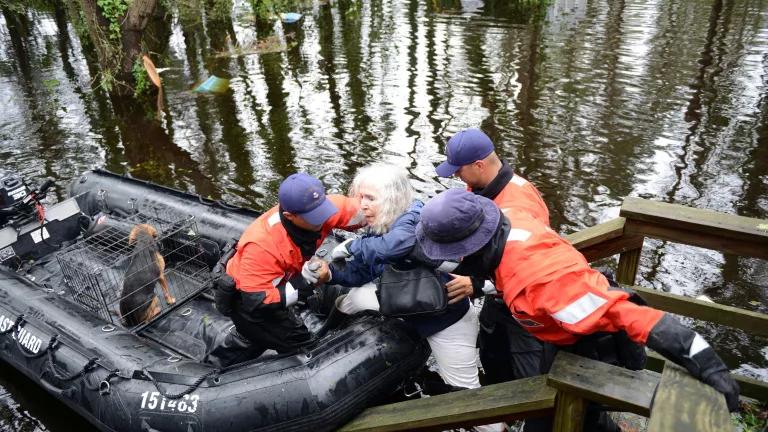New Secretary of Energy Can Reduce Global Warming Pollution with Efficiency Standards and Continued Support for Clean, Renewable Energy
“A low-carbon economy is absolutely critical,” Ernest Moniz told senators at his nomination hearing. As widely anticipated, Moniz, a former top Department of Energy (DOE) official and head of MIT’s Energy Initiative, was confirmed today as the new Secretary of Energy, with plenty of bipartisan support. We at NRDC look forward to working with Secretary Moniz to continue President Obama’s push to expand clean energy and efficiency. The President, in the budget proposal for fiscal year 2014 he recently released, would give Moniz a solid start in advancing the low-carbon economy, by increasing DOE funding for renewable energy, advanced vehicle research and development, and energy efficiency programs.
In the early years of President Obama’s first term, the DOE had a strong record in improving energy efficiency, particularly in its successful program to set energy efficiency standards for appliances, electronics, and other equipment. However, the agency’s efforts on this front slowed down and seemed to weaken in the second half. Until last week, the DOE hadn’t released any updated or new energy efficiency standards for nearly a year--despite firm statutory deadlines--resulting in a backlog in this highly effective program.
The silence was finally broken just the other day when the DOE issued new standards for the distribution transformers that sit atop power poles, which step down high-voltage current to the 110 or 220 volts used by appliances and equipment. There are about 40 million of these transformers nationwide, and strong standards would have translated into major energy and cost savings. But these standards were not as strong as they should have been, and left significant savings on the table. Moniz can make a big difference in getting DOE’s efficiency program back on track and renewing and accelerating its earlier success. He will also need to run interference at the Office of Management and Budget, where the slow review of DOE standards has contributed to the backlog.
Issuing strong efficiency standards, and updating them regularly, has proven to be a powerful and cost-effective approach to saving energy on a broad scale, reducing global warming pollution and saving money for consumers and businesses. However, seven other federal efficiency standards for equipment and appliances, ranging from microwave ovens to electric motors, are overdue, and other important ones are in the works. Secretary Moniz should move quickly to update these standards and pass energy savings onto consumers. According to the Appliance Standards Awareness Project, each day the overdue standards are delayed costs consumers and businesses about $10 million in lost savings, and produces over one hundred thousand metric tons of global warming pollution.
As secretary, Moniz can also continue to drive clean, renewable energy development that will provide an alternative to polluting fossil fuels. Under departing secretary Steven Chu, the agency oversaw $90 billion in clean energy investment, resulting, among other successes, in the weatherization of more than 1 million homes for low-income families, a move that saves nearly half a billion dollars in heating and cooling costs every year. DOE investments also helped double the domestic supply of parts for the wind industry, and supported nearly 200,000 renewable energy jobs as well.
The DOE’s investments in clean energy have been rated a success by independent analysts, despite a flurry of Republican attacks. The President’s budget for FY2014 strives to capitalize on this success by increasing the DOE’s funding for renewable energy research and development over last year, as well as funding for advanced vehicle technologies. It would also increase funding for the promising ARPA-E program, which supports early-stage clean energy research and enjoys bipartisan support.
ARPA-E is modeled after the Department of Defense’s highly successful DARPA, which spawned the Internet, GPS, and other commercially successful technologies. ARPA-E innovators are already starting to attract private venture capital for potential breakthrough technologies, such as high-energy lithium batteries that could be used for electric vehicles, low-cost solar panels, and powerful wind turbines that can operate at high altitudes and greater wind speeds. The game-changer for energy could be taking shape right now, thanks to support from ARPA-E.
Today’s technologies are helping get more clean cars on the road, more energy efficient buildings on the ground, and building a supply of clean, renewable energy to power our homes and businesses. But we need political leadership and consistent support for clean energy to speed the process, and create an environment where tomorrow’s clean energy technologies can thrive.
With his strong record in energy policy and in science, and his ability to work with the many diverse constituencies served by the DOE, Moniz is an excellent position to make progress on the President’s climate agenda. By pushing through the delayed efficiency standards, by helping scientists and innovators break through financing and bureaucratic barriers and speed their technologies to market, the DOE can help us meet our energy needs through greater efficiency and clean, renewable energy, instead of continuing to drive global warming pollution.



